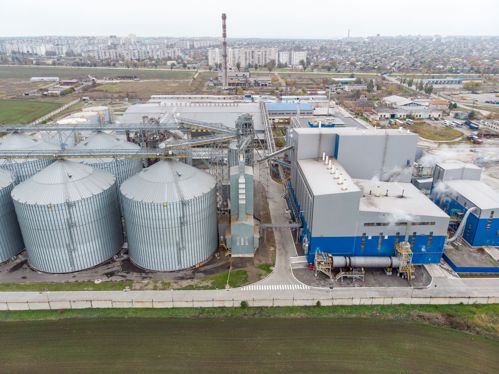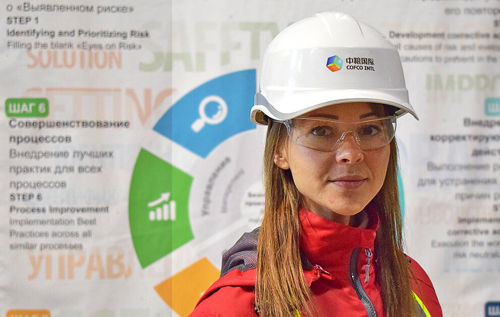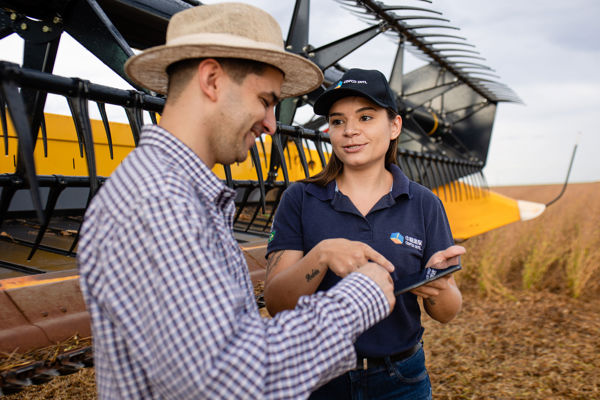
Humans are complex, but key to zero accidents
When it comes to safety, technical problems are usually straightforward to repair. But fixing human behaviour is more complex, says Svetlana Kubarieva, Environment, Health and Safety (EHS) Manager at COFCO International’s crushing plant in south eastern Ukraine’s city of Mariupol.
The plant receives sunflower seeds from all over Ukraine, especially the east, then processes and exports the oil to more than 30 countries around the world. Set just outside one of Ukraine’s largest cities, the Mariupol plant is a maze of metallic silos, a crushing plant, laboratories, administrative offices, and warehouses.

To protect the environment, workers, and general public alike, the system includes built-in safety checks such as sanitary state, fire detectors and equipment, careful management of lockout-tagout (LOTO) system, and rigorous maintenance and quality controls. The processes, plans, standards, laws, and regulations are all maintained at the highest standards.
But to maintain the plant’s track record of zero industrial accidents since she started working there in 2011, Svetlana and her team keep a laser-like focus on the people they work with.
“If just one person has a problem, is stressed or unhappy, then it can impact everything around,” Svetlana says.
“So when I am in production areas, I look carefully not just at the safety precautions and works with equipment but how people are doing their job: I try to judge their mood.”
No compromise
Born and brought up in central Ukraine like her father before her, Svetlana, began her career with a computer ecological-economic monitoring degree from Kharkiv National University of Economics. After returning to her native Mariupol in 2011, she worked with Noble, then COFCO International, where she soon specialised in health and safety.

Most people - most of the time – comply with safety rules. But the pressures of work can lead some to try cutting corners. On one occasion, an external contractor was dismantling an old silo and asked Svetlana “to close her eyes for three weeks” so that he could finish his work more quickly.
“Forget it,” Svetlana recalls telling him. “That’s not the way I work.”
To protect the health and safety of its people, COFCO sometimes requires staff to spend longer on a project than if they were working with someone else.
“I don’t compromise where lives are at stake.”
Training is the critical component. Every month, Svetlana organizes about 20-25 training sessions. “A serious activity,” she says. “But I always throw in some fun.”
The most important thing is that these sessions help people to internalize the importance of rules on health and safety. Why do we need to work safely? “Because at the end of the day, our friends and family want us to come home,” she says.
Svetlana’s focus mirrors COFCO’s wider approach, in which health and safety has expanded beyond checks and procedures to look at the more human aspects such as training, employee engagement, and awareness. Everyone is responsible for ensuring safety at work.
Indeed, Mariupol is part of COFCO’s global initiative, “Eyes on Risk”, in which all staff are asked to report any safety hazards or unsafe behaviours, and then to propose solutions.
“This initiative has mobilised the whole workforce to help ensure safety in the workplace, Svetlana says.
“Everybody is a safety inspector and practitioner, and this is exactly what we need.”
Proud of her city
Strategically situated with access to the Azov and Black Seas, Mariupol also has a major port. In November, COFCO International announced a partnership with the local government to develop port infrastructure and help boost cargo traffic threefold.
Svetlana says she will be happy to witness the transformation.
“We need to put all our forces and energy to make this city, bigger, better and more liveable.”
In her private time, Svetlana engages in neighbourhood recycling projects, helping to install containers and encouraging people to separate their waste.
“At work and at home, I keep people at the centre of everything,” she says. “That’s how I chose to work and live my life.”
